By Alisa Messer
As a writing teacher, I’ve spent a fair amount of time in the classroom talking about questions: Sure, there are “no stupid questions”—but what makes a good one? Some questions are better framed to help us understand the depth of a subject, the critical nature of a situation, and what we must ask or do next.
The questions about City College these days demonstrate a deepening understanding of the college’s value, crisis, and possible futures. They have evolved from a confused “What is going on at CCSF?” to more emphatic queries like “Are they really going to close our college?” The progression tracks the public’s growing clarity about what is at stake.
A decisive answer here: No, they are not going to close our college.
But there’s an essential follow-up question: What kind of college are we going to have? Our community—those of us at the college itself, and the public that relies on it—will need to grapple with that, now and in the months to come.
While we have been actively investigating ACCJC’s improper and illegal imposition of sanctions and working to reverse them, we as a faculty have at the same time been addressing the ACCJC’s directives. From the very beginning, faculty joined work groups and, along with others at the college (and a bevvy of high-paid outside consultants), devoted enormous amounts of time and energy to working on the accreditation recommendations.
Keep in mind: no ACCJC finding said that the quality of education at City College was anything other than excellent.
Faculty also contributed to solving the financial issues at City College. Many of these problems came from outside the institution, with the recession and severe underfunding from the state. Some were generated by poor fiscal management. They were not caused by faculty, who nonetheless sacrificed, and continue to sacrifice, to pay for them.
With the public’s help, we filled the financial hole that CCSF was facing: Propositions A and 30 should have stabilized the college budget for years to come. But the destructive impact of the ACCJC’s actions have turned that hole into a widening cavern—more than $20 million next year—as enrollment and future revenue spiral down.
Enrollment drops mean lost revenue and the likelihood of a vicious downsizing cycle that could leave San Francisco with a community college that serves a third the population it once did. The numbers also represent thousands of real students—perhaps a whole generation—delaying, dropping out, missing out on the opportunities a community college education affords. Our neighboring community college districts (let alone Bay Area traffic and transport) cannot absorb these students. (The for-profit colleges and student debt industry may swoop in—but should they?)
As such, saving our City College of San Francisco is about much more than ensuring our accreditation, as important as that is. Saving our college means we must struggle with the questions: What kind of college are we going to have? What kind of college do San Franciscans deserve?
Although living with the threat of disaccreditation has been challenging, faculty have risen to the occasion many times over, taking part in the accreditation work, writing SLOs, promoting enrollment, and—most importantly—educating our students. Despite the admonitions that we should do all this quietly and silence very real concerns about what is happening to our beloved college, our livelihoods, and our ability to deliver quality education to our students, we have also made some noise in the process. And it’s making a difference.
A growing community of concern regarding ACCJC’s actions at City College and beyond has recognized that CCSF’s evaluation process was deeply flawed.
The tide of public opinion is turning, and key decision makers and public leaders are now convinced: something is very wrong in ACCJC land. Our extensive research demonstrates the unfair, illegal, and often outrageous conduct of an accrediting agency gone off the rails and doing irreparable harm to California’s community colleges. The U.S. Department of Education has corroborated our concerns, citing conflicts of interest, a dramatic lack of faculty participation in the review process, and unclear standards that are not supported by the educational community, among other concerns. And there are three lawsuits underway to stop the accrediting commission.
California’s community colleges have an essential—and visionary—mission, serving community needs throughout the state, providing accessible quality public education “for all who can benefit.” Our communities are diverse: San Francisco is not Bakersfield, or San Mateo, or Van Nuys. We have different populations, and different community needs—and our course offerings, programs, and support services must reflect those differences.
If we create—or are forced to create—a cookie cutter approach, and every community college around the state becomes solely a “junior college,” that will continue to help a lot of people. But it will also leave a lot of people out in the cold, and those it excludes will be among those who need education the most. They will be our communities’ most vulnerable students, who have the most at stake, whose fortunes affect the communities where they will thrive—or struggle for lack of education.
In San Francisco, our community college provides irreplaceable and affordable pathways for many, including low-income and immigrant communities; displaced workers; veterans and the disabled; students in need of second—and third—chances, and students transferring to four-year institutions.
We want to keep this college intact as a public institution for the public good, preventing privatization and profiteering; we should not be selling off pieces or programs to the highest bidders or pushing students into deeper debt at the for-profits. We need a college that supports faculty and all campus workers to do their best work—and values and sustains them for their efforts.
We believe City College of San Francisco must remain broad and inclusive in our services and programs, providing quality education and meeting the educational needs of San Francisco and Bay Area residents, accessible to those who need it most. What kind of college is San Francisco going to have? What kind of college are we willing to fight for? (amesser@aft2121.org)


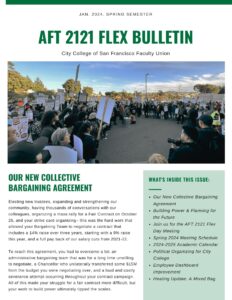
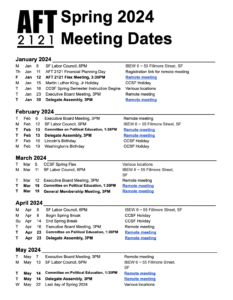
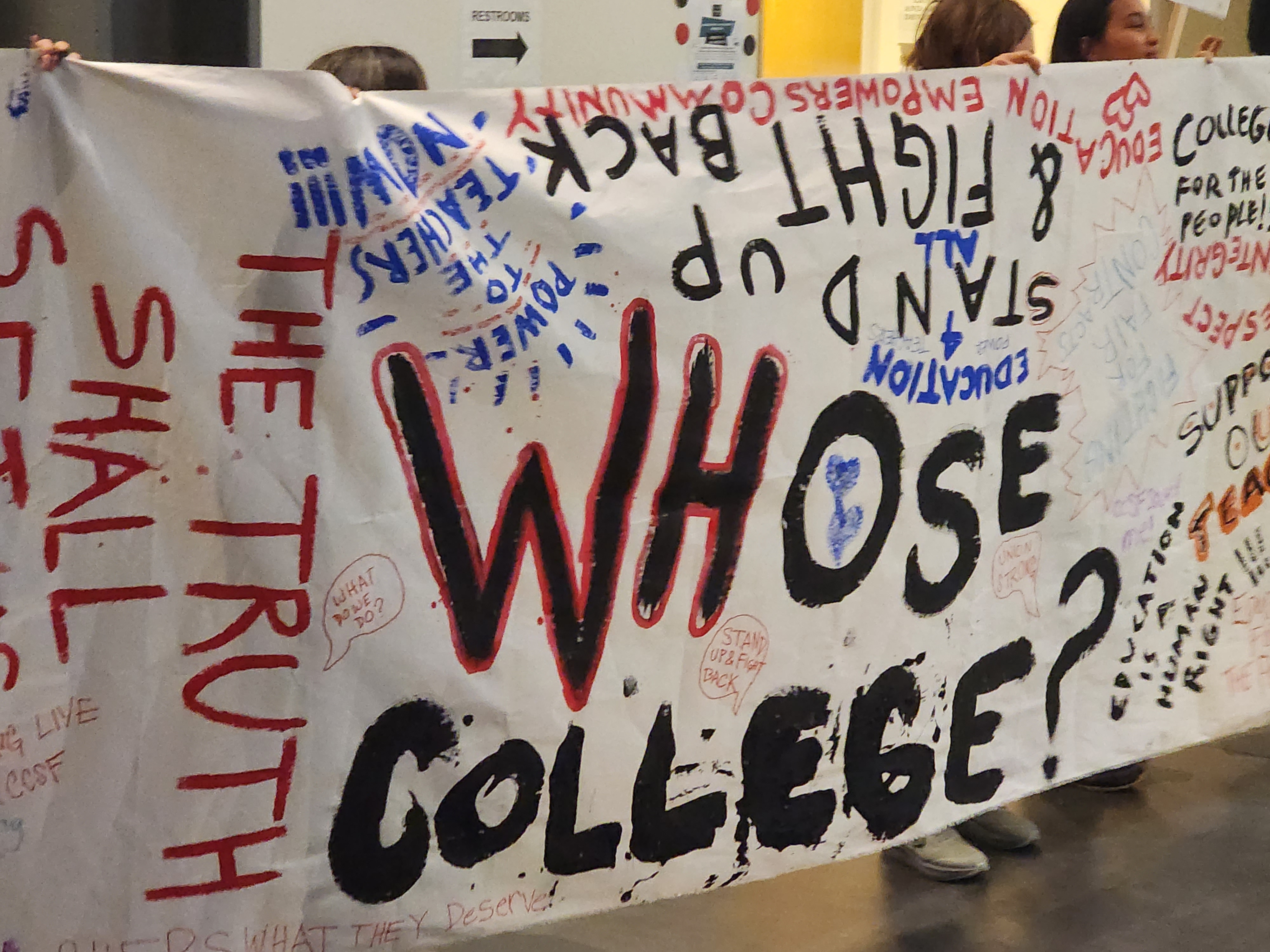
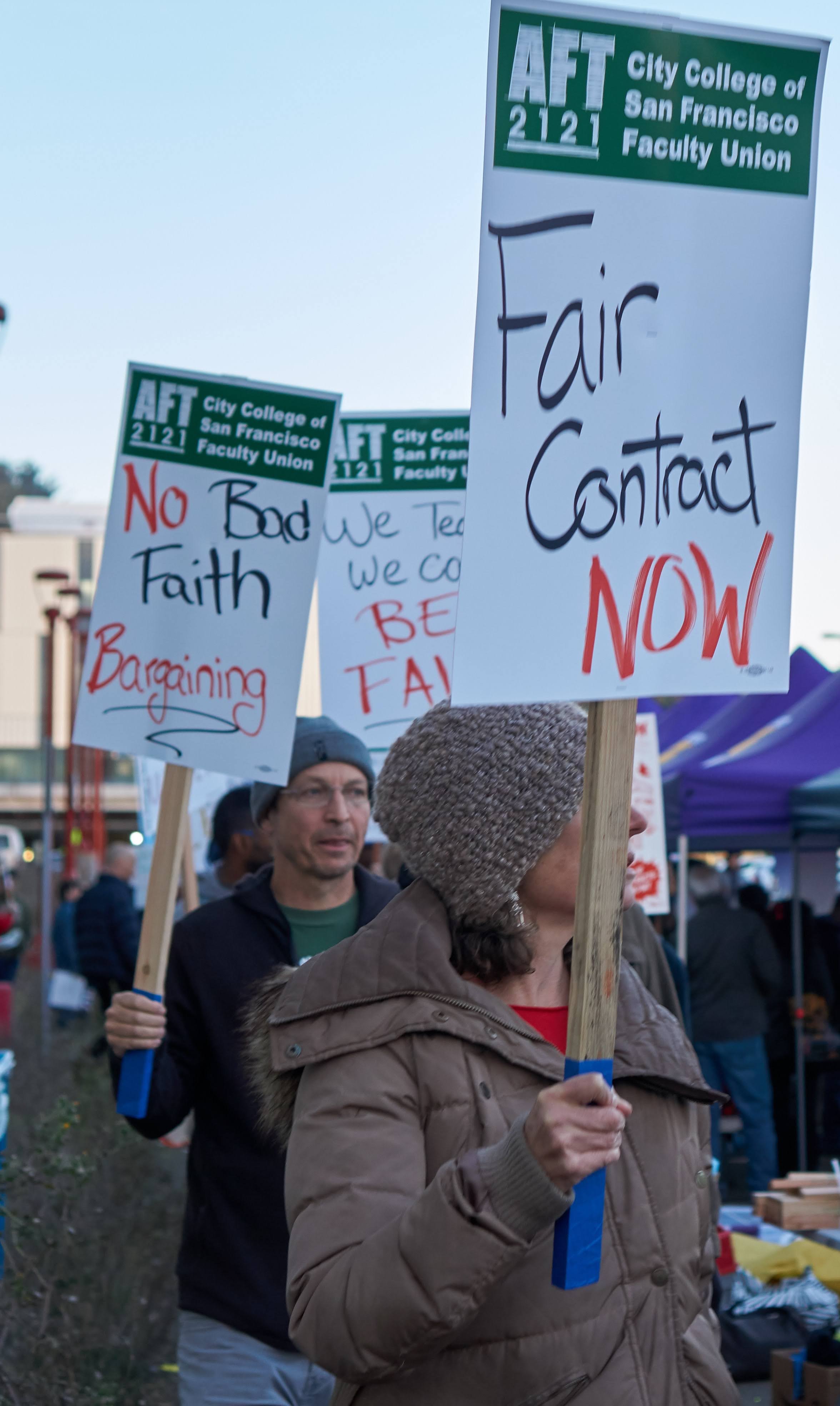
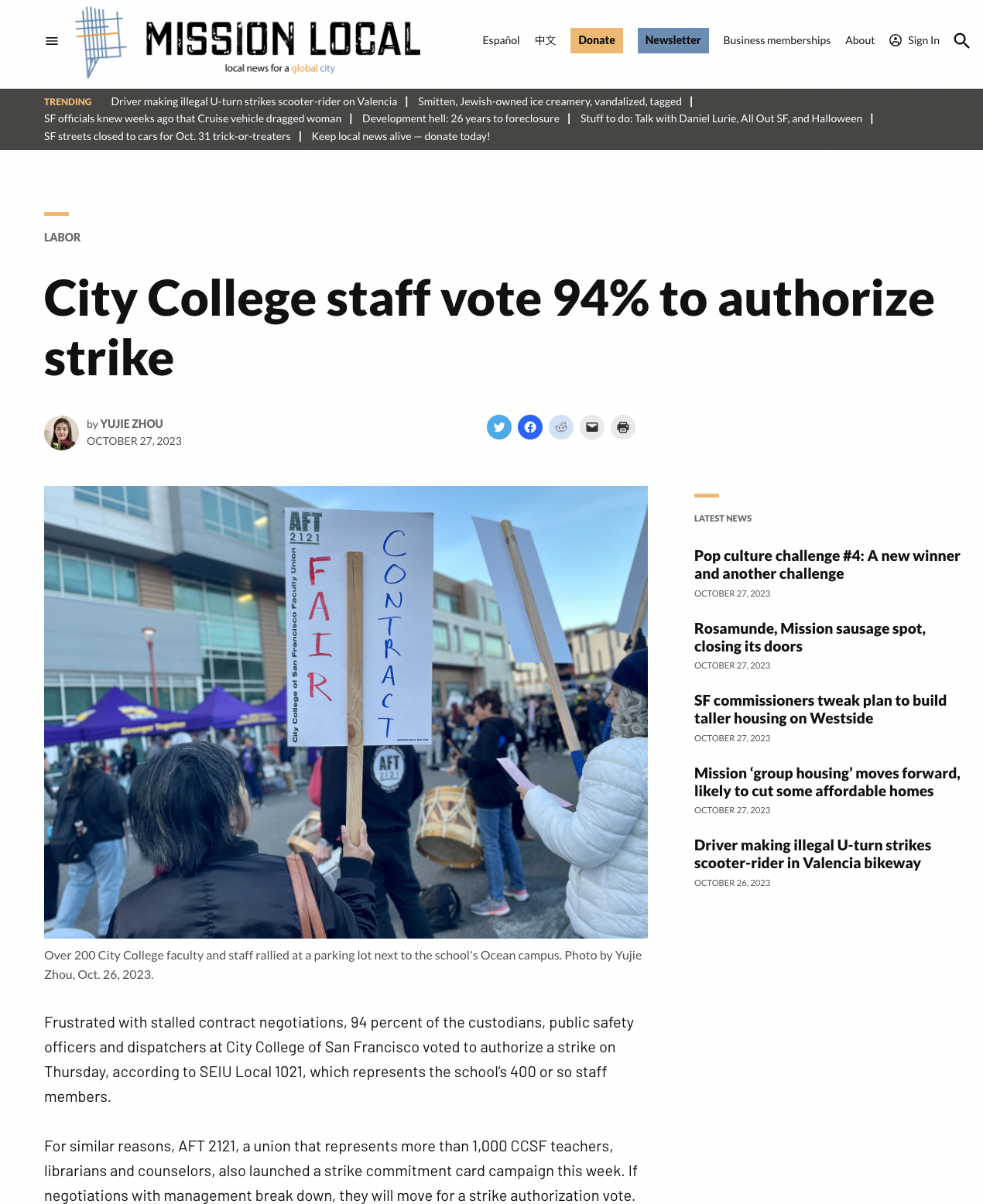
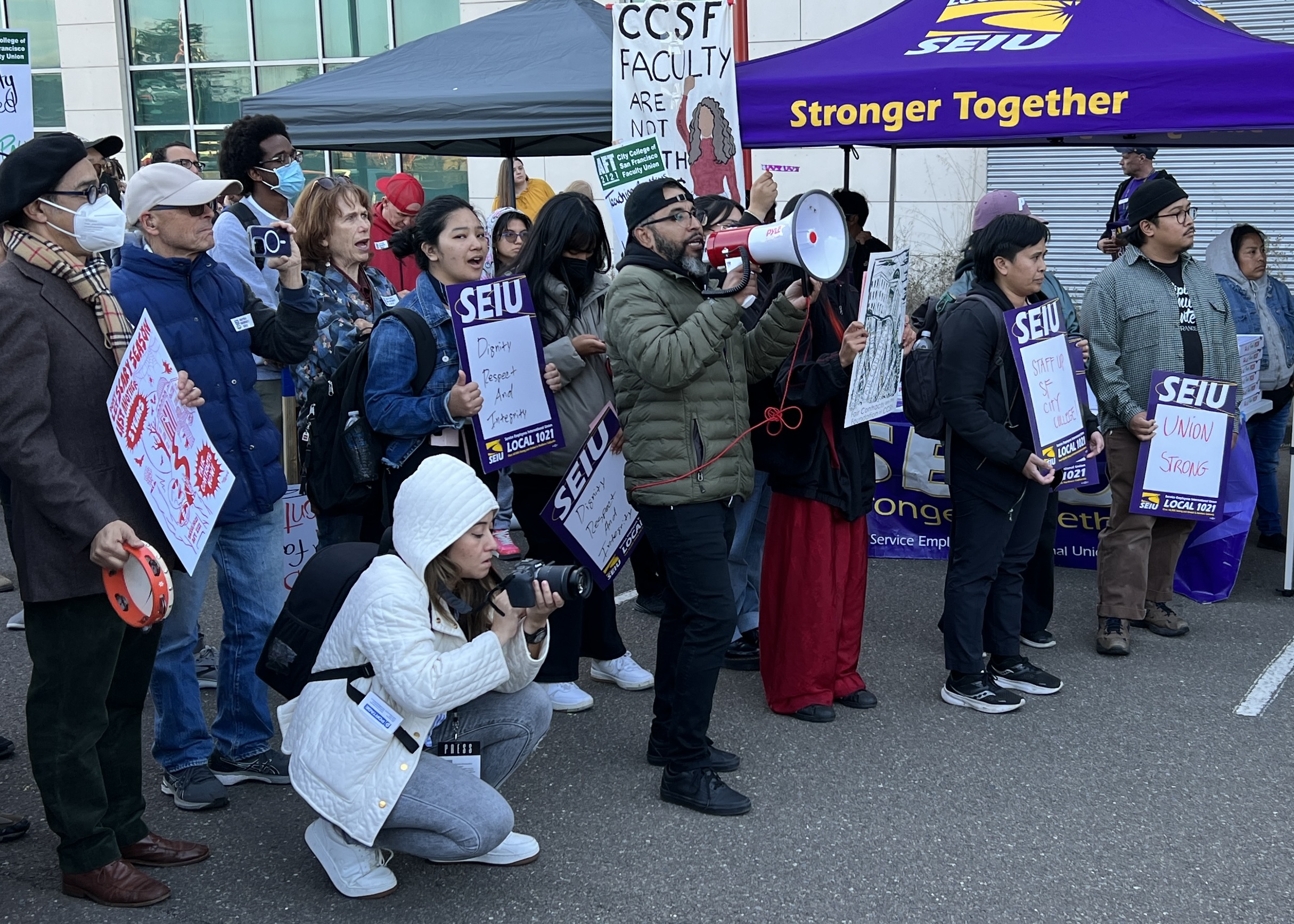
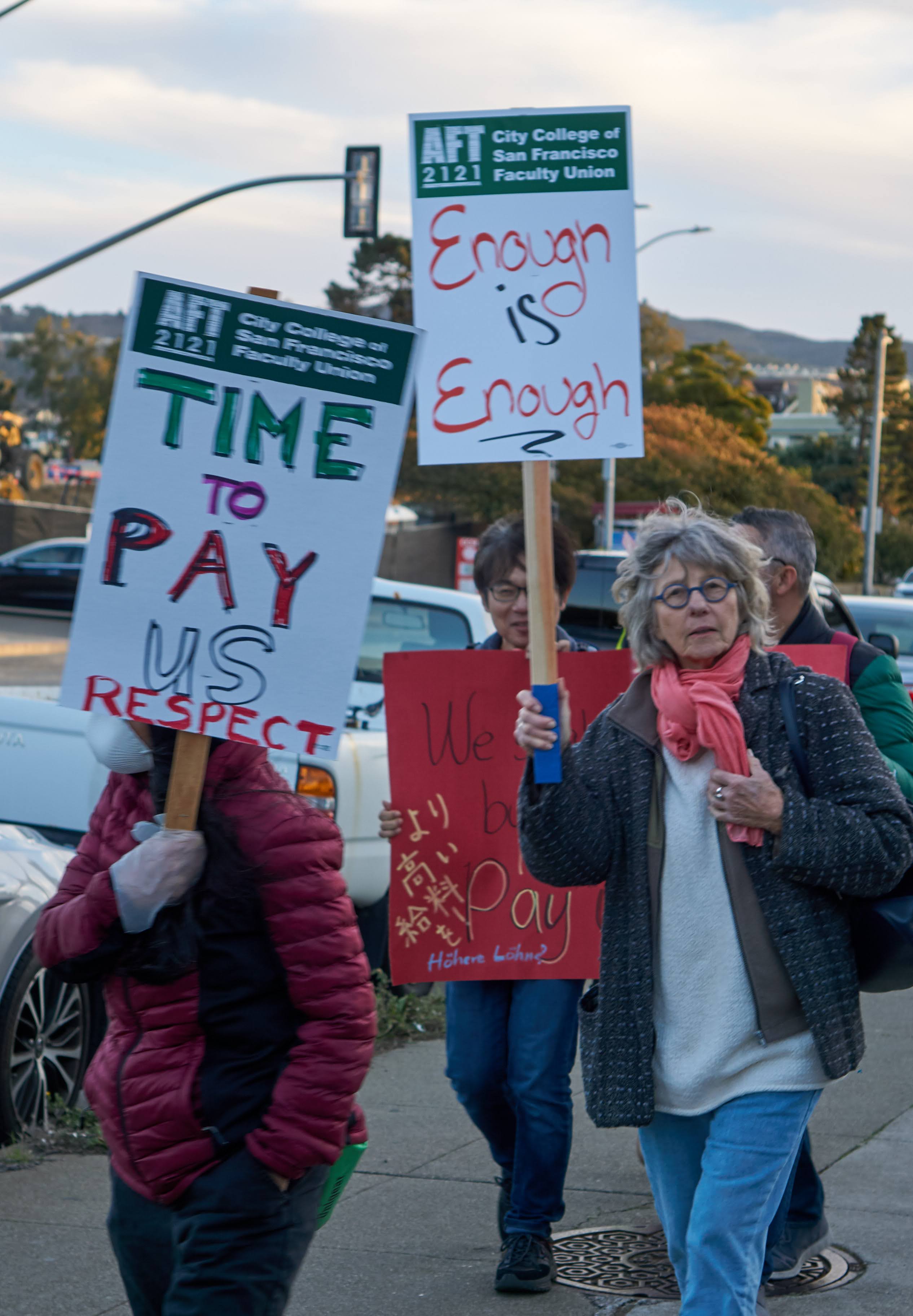
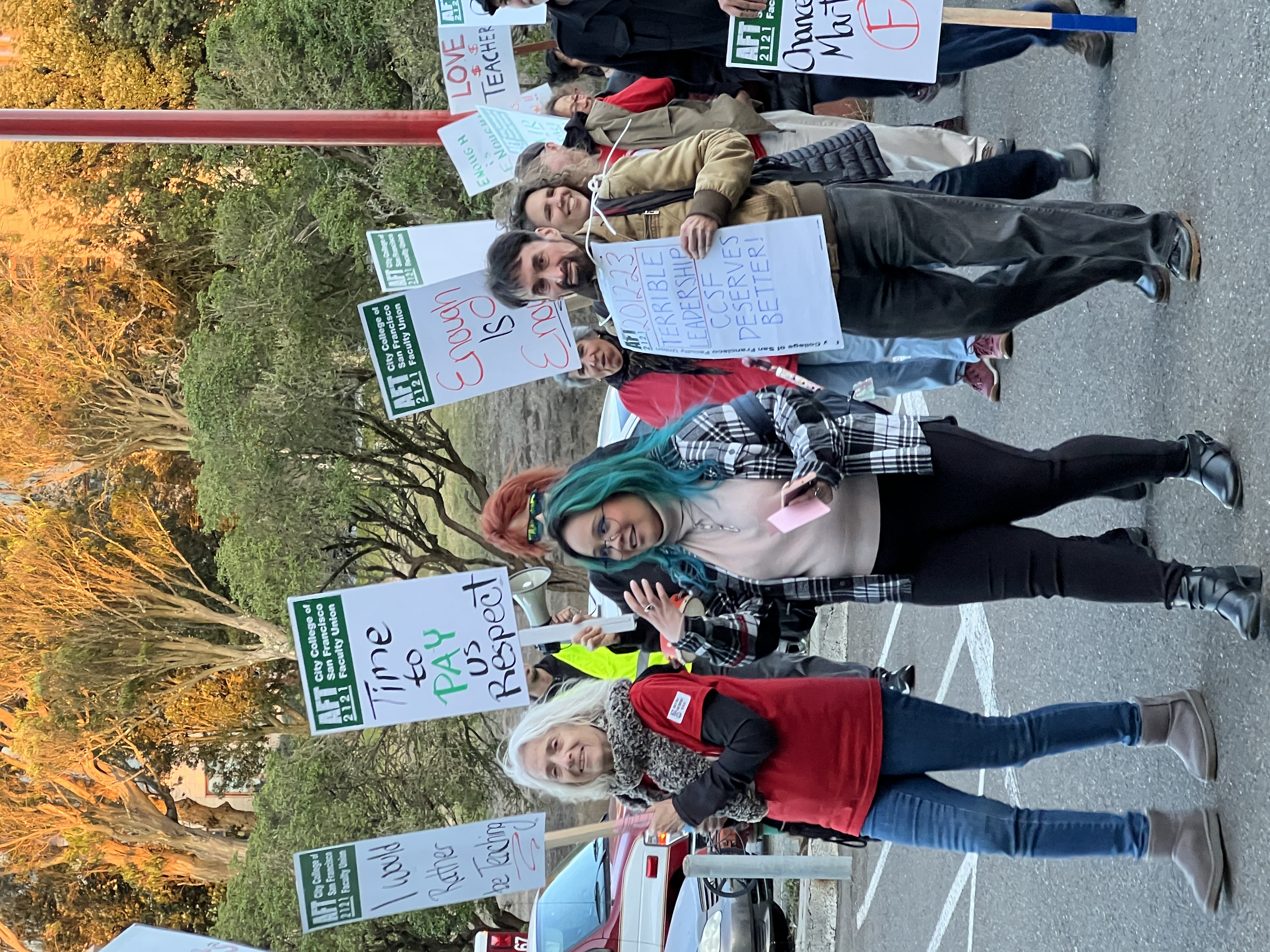
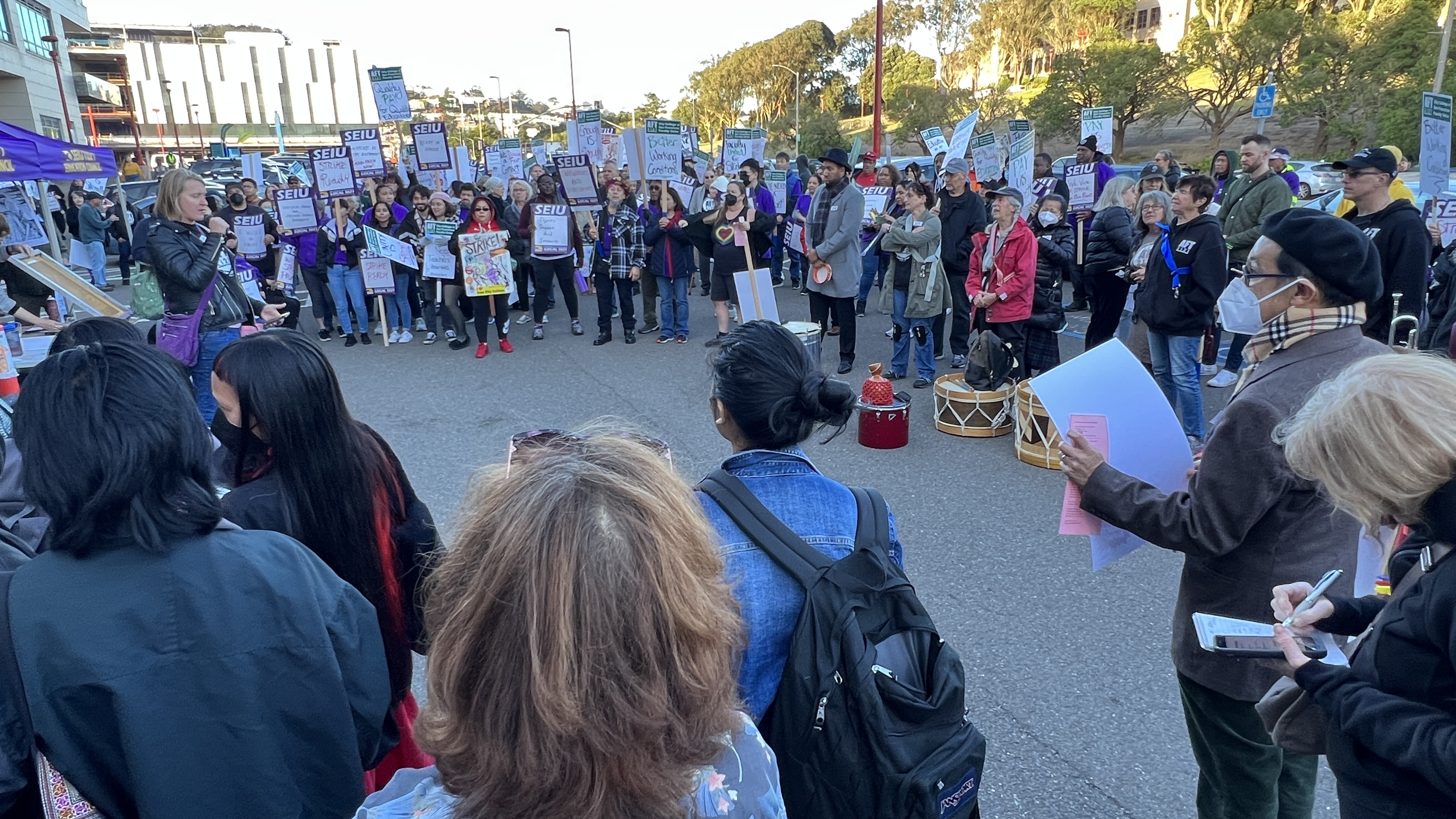
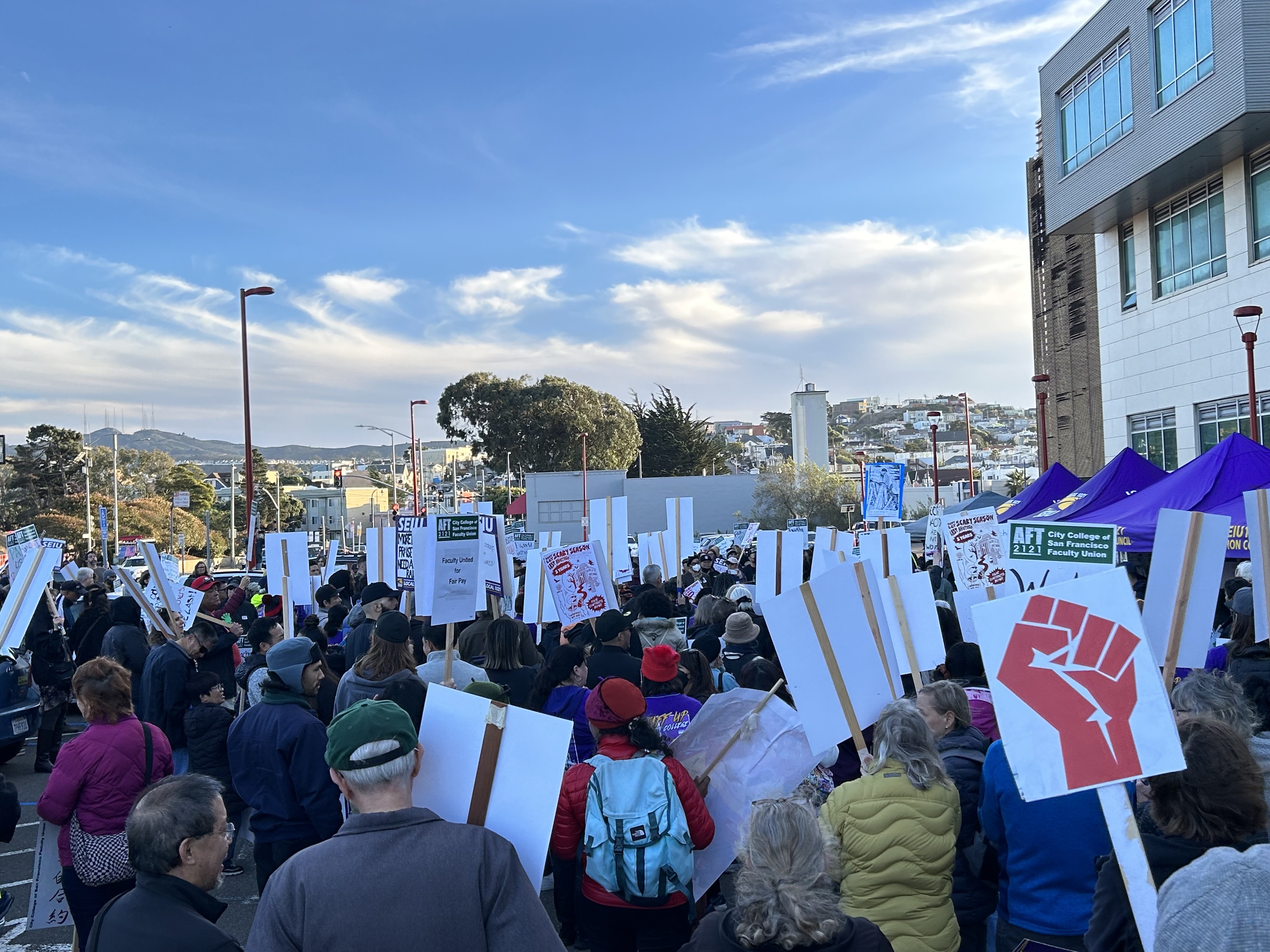
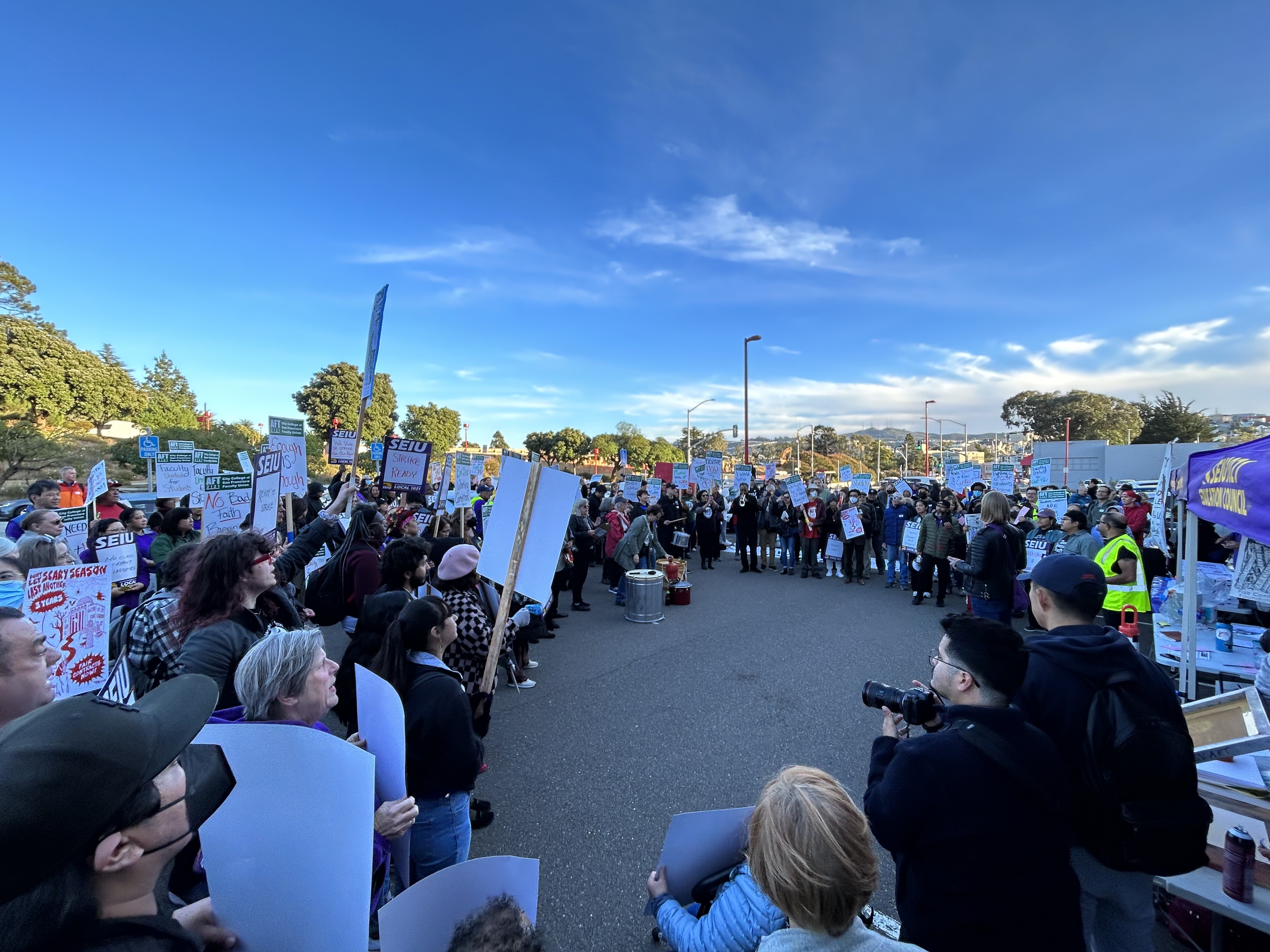
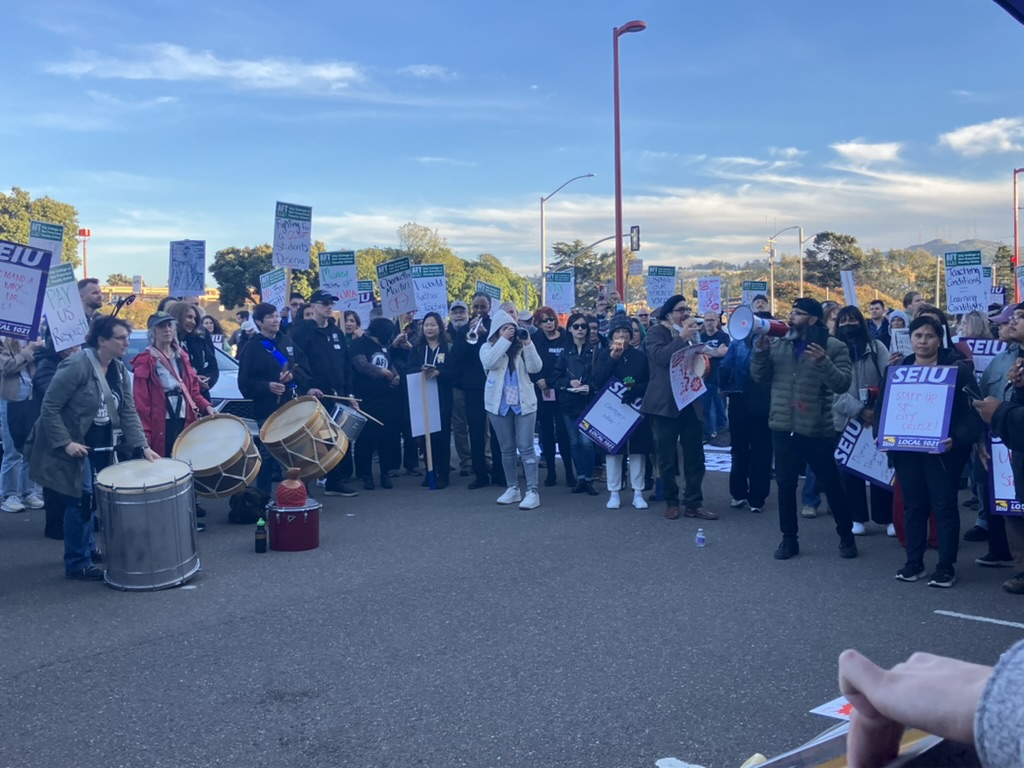
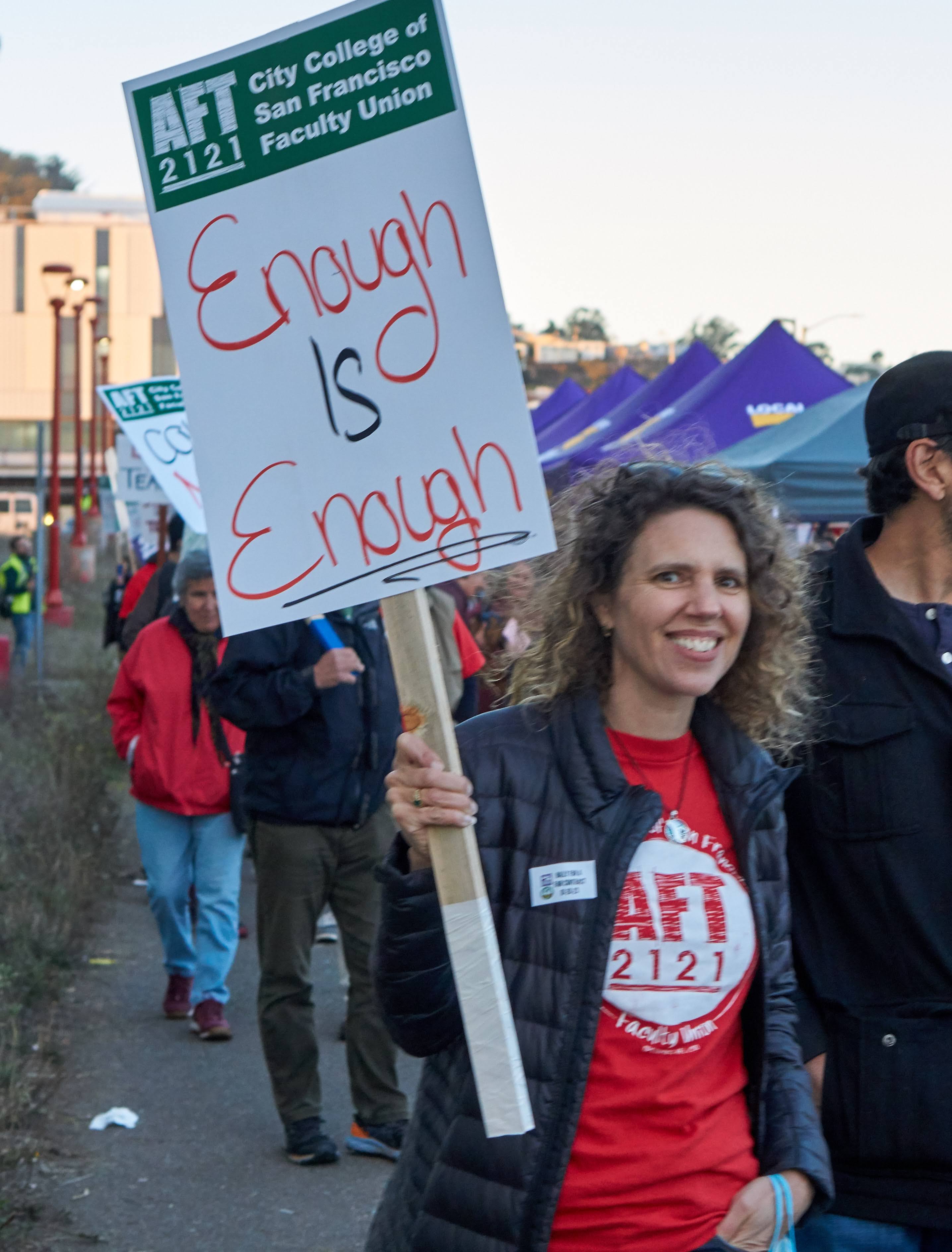

Follow Us!